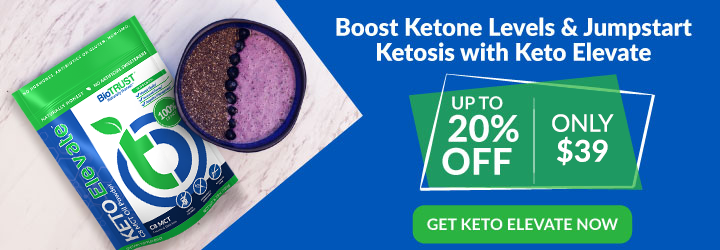The Worst Oils for You (and where they are hiding)

Americans consume roughly five to ten tablespoons of oil per day. If you think you must be way below the average, think again. These oils are everywhere, often hidden. They can be in your favorite foods, such as bread and cereal, salad dressings, and even high-end restaurant meals. While manufacturers are getting considerably more creative at how they are including the worst oils into our diets, there is a super simple way to ensure you are not falling prey to their hidden agenda: Consume whole foods. Boom!
Easier said than done, I know. I often coach folks to be consistent and healthy with their diets roughly 80 – 90% of the time and allow for some flexibility with the other 10 – 20% (often referred to as the 80/20 rule). That doesn’t open the door for splurging or completely going off the rails, but it does allow for some leeway.
Here’s how to use the 80/20 rule in regular life:
- Choose to use the rule either weekly or daily. On the week-long approach, 80% of your weekly meals are healthy. The daily approach, on the other hand, means 80% of your daily meals are healthy. The weekly approach tends to be more effective as you’ll eat more healthy meals over time.
- Create healthy meals. Build your healthy meals by combining proteins, vegetables and fruits, and nutrient-dense carbs such as whole grains. For the “fun” meals, you can eat whatever you enjoy. Still, you’ll want to avoid bingeing on junk food.
- Meal prep. Taking time to prep your meals allows you to have healthy options available and can thus prevent you from making unhealthy choices if you get overly hungry or are stressed for time.
- Eat to feel good. As you change your eating habits and lifestyle, your body and energy levels will change too. Notice how much better you feel after healthier meals.
Now back to the topic at hand… oils.
The Different Types of Oils
As you know, not all oils are created equal. While there are some I would recommend using and regularly include in my own healthy diet, there are some I would recommend avoiding as much as possible.
This blog article contains a plethora of information on saturated and unsaturated fats. The Cliff Notes are as follows:
• Unsaturated fats can be broken down even further into monounsaturated and polyunsaturated fats.
• Monounsaturated fats can have healthful benefits, such as helping reduce blood pressure, triglycerides, and inflammation, which may have beneficial effects for the heart. Good sources of monounsaturated fats include olive oil, avocado, and nuts.
• Polyunsaturated fats can also be broken down into two categories: omega-3 fatty acids and omega-6 fatty acids. These fats have two or more double bonds in their carbon chain and are essential fats for the body to function. However, polyunsaturated fat cannot be produced by the body, so you must get them from the foods you eat.
There are many types of omega-3 fatty acids, but the most common are EPA, DHA, and ALA. These types of fat are vital for blood clotting; supporting heart, brain, and mental health; and decreasing inflammation that can contribute to a number of chronic diseases. A few good sources of omega-3s are flaxseeds and fatty fish such as tuna and salmon.
Omega-6 fatty acids are also essential (i.e., they must be obtained from the diet). The most common omega-6 fat is linoleic acid. Omega-6 is considered to be pro-inflammatory, which is necessary in small amounts. However, in Western diets, we eat way more omega-6 fatty acids than needed, which can put us at risk for various chronic conditions. As a result, most people should significantly reduce their omega-6 intake and try to replace it with healthier alternatives. Omega-6 fatty acids can be found in sunflower, safflower, and corn oils, for example.
• Saturated fat, on the other hand, has been a topic of debate whether or not it is truly good for us. This is because saturated fat seemingly affects cholesterol levels and heart disease. The idea that saturated fat consumption led to heart disease followed the diet-heart hypothesis, which has now been discredited. Recent research suggests it is not nearly as harmful as once thought.
In fact, it’s now widely accepted that saturated fat is not associated with heart disease or other adverse health outcomes. Saturated fats can be beneficial in boosting metabolism and increasing energy. Common sources of saturated fat are coconut oil, whole-fat dairy, and red meat.
• Refined fat is basically a fancy way of saying oil that has been altered by using chemicals that are harmful to us. The method of creating or refining these oils leads to PUFas (rancid polyunsaturated fatty acids). Unfortunately, these fats don’t stand up well to high heats. As they’re extracted, the oils oxidize, which turns them into trans fats. To cover the rancid smell, they are then cleaned and deodorized with bleach. Yuck!
Trans fat is the worst kind of fat. These types of oils are ones that are hydrogenated for a longer shelf-life. These oils can increase “bad” LDL cholesterol and decrease “good” HDL cholesterol.
Artificial trans fats can also create inflammation, which is linked to heart disease and other chronic conditions and contributes to insulin resistance, which increases your risk of developing Type 2 diabetes. Fortunately, artificial trans fat has now been banned by the Food and Drug Administration.
The 5 Worst Oils For You
One of the most common oils is a polyunsaturated fatty acid vegetable oil, which consists primarily of fatty acids. Different types of fatty acids play different roles in the body.
The most abundant fatty acid in most vegetable oils is called linoleic acid. This is a type of omega-6 fat, which is what makes these oils problematic. As mentioned above, omega-6 fats, while necessary in extremely small amounts, contribute to general inflammation, especially when overeaten.
The name vegetable oil is also a bit misleading, as there are no vegetables in vegetable oil. In fact, up to 85% of “vegetable oils” are from soybeans, with a few actually from fruit; this includes olive, coconut, and palm oils.
Also falling under the “vegetable oil” umbrella is sunflower oil. This ranks number two on my worst oils list, despite sunflower oil containing some potential benefits. There are four common types of sunflower oil available here in the U.S. Each type is made from sunflower seeds that are bred to produce different fatty acid compositions.
BREAKING: US Doctor: “Eating This Every Day Can Snap You into Ketosis”
These include high linoleic (68% linoleic acid), mid-oleic (NuSun, 65% oleic acid), high oleic (82% oleic acid), and high stearic/high oleic (Nutrisun, 72% oleic acid, 18% stearic acid). One negative aspect of sunflower oil is its release of potentially toxic compounds once heated to 356° F (180°C) repeatedly, such as in deep-frying applications.
In fact, one study found that sunflower oil released the highest number of aldehydes into cooking fumes, compared with other plant-based oils in three types of frying techniques. Aldehydes are toxic compounds that can damage DNA and cells and thus contribute to conditions like heart disease and Alzheimer’s Disease.
Another lesser known oil I would like to mention is cottonseed oil. Cottonseed oil has more saturated fat than other oils and less healthy fat. In addition, concerns have been raised about pesticides that are used in cotton farming that may end up in the oil in trace amounts.
Then we have corn oil. Oxidized fats are one of the worst substances you can consume.
Linoleic acid is a precursor to arachidonic acid (AA), and AA causes weight gain by activating the endocannabinoid system. Obesity, as we have discovered, can increase the risk of heart disease risk. It’s also closely tied to insulin resistance, high blood sugar, diabetes, high blood pressure, and a host of other risks.
Last but not least, is canola oil. Canola oil has long been marketed as a “healthier” oil because it’s low in saturated fats and is also a source of some omega-3 fatty acids. Unfortunately, canola oil is far from healthy. In fact, not only is canola oil typically genetically modified, it is often highly processed and refined.
Canola oil can increase inflammation in the body. Chronic inflammation can be highly damaging to the body as it attacks healthy cells, blood vessels, and tissues. Inflammation can dampen energy production in brain cells and slow the firing of neurons. This can, in turn, contribute to ADHD, anxiety, brain fog, depression, memory loss, and even Alzheimer’s disease.
Healthier Oils to Use
My top choices for oils you should have in your healthy diet are as follows:
- Extra Virgin Olive Oil (EVOO), which is perhaps the most popular, versatile, health-enhancing oil.
- Coconut Oil: While there’s a fair bit of controversy when it comes to coconut oil, I think it’s one of the best cooking oils. Coconut oil is unusual for a plant oil as it’s mostly saturated fat and is therefore solid at room temperature. This saturated fat means it is also more stable when heated.
- Avocado Oil: With a higher smoke point (480+ degrees F), avocado has a nice, mellow, yet creamy flavor. Virgin avocado oil, though, has a lower smoke point, so it is best used for drizzling on salads and low-heat applications.
- For an easy way to boost your healthy fats, try Keto Elevate™, which adds 5 grams of C8 (per serving), the most powerful, most ketogenic MCT.





 7 Signs Your Body is Seriously Low on Collagen (not just wrinkles)
7 Signs Your Body is Seriously Low on Collagen (not just wrinkles) Health Expert: "Turmeric Doesn't Work (unless...)"
Health Expert: "Turmeric Doesn't Work (unless...)" 3 Warning Signs Your Probiotic Supplement is a Total Waste
3 Warning Signs Your Probiotic Supplement is a Total Waste

